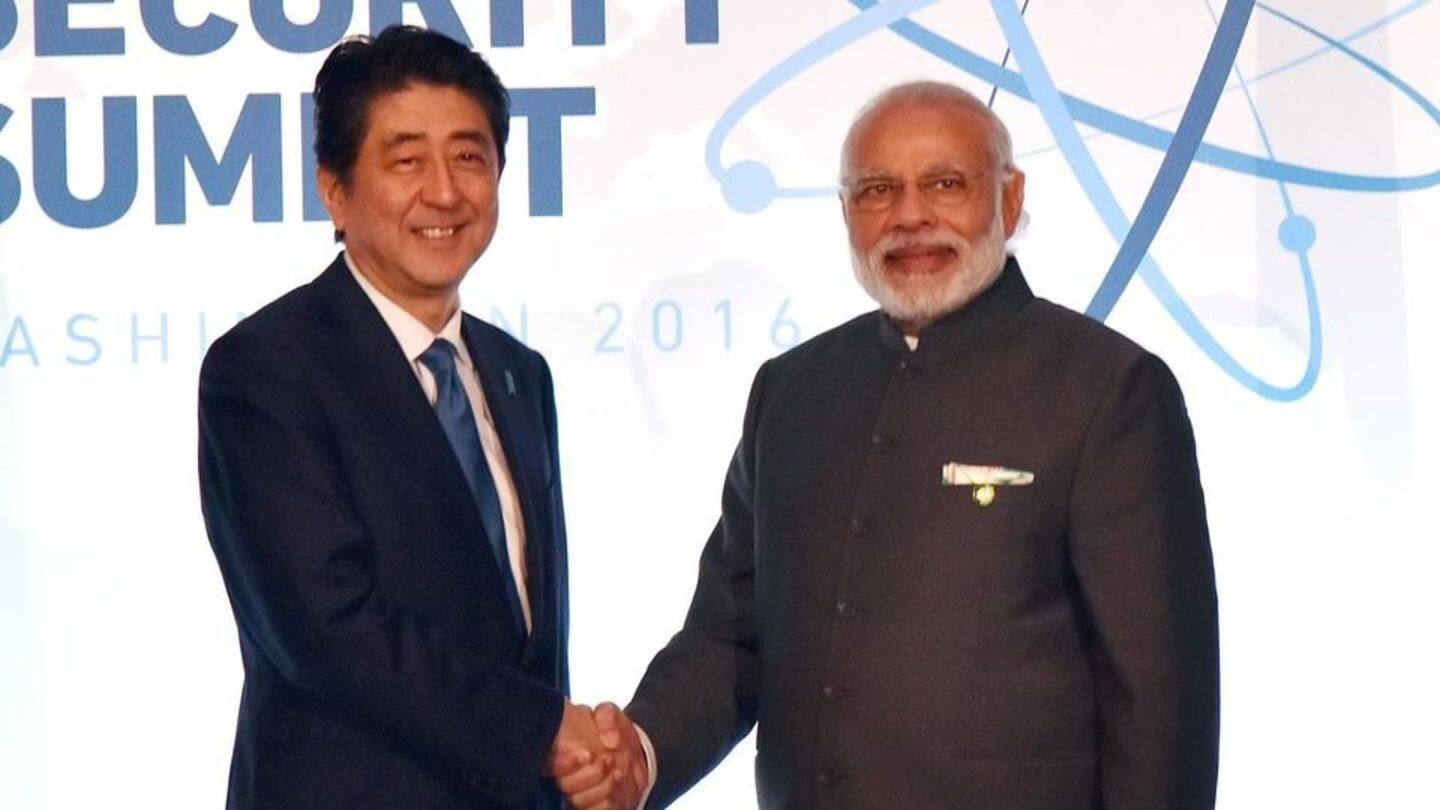
Bullet trains might change the face of Railways in India
What's the story
PM Narendra Modi and Japanese PM Shinzo Abe will lay the foundation stone of India's bullet train on September 14 in Ahmedabad. The project known as the Mumbai-Ahmedabad High Speed Rail (MAHSR) might potentially redefine the way majority of the country's citizens travel. Why could this be a phenomenal leap for India? What can be expected from this India-Japanese partnership? We elaborate.
Financing
India gets a favorable bargain in terms of pricing
The Japanese government will provide India a soft loan of approximately Rs. 90,000 crore at a 0.1 interest rate over 50 years. The loan's repayment will begin after 15 years. Normally, developmental financing institutions provide loans with 3-7% interest rate and a repayment period of 20-30 years. This is the first time that such a huge project is being funded on such favorable terms.
Make in India
The partnership will adhere to 'Make in India' campaign
The MAHSR project has been negotiated to ensure that there will be local production of components, giving primacy to the "Make in India" campaign. It will also ensure technology transfer. This will then enable us to construct such projects in the country. Moreover, a High Speed Rail Training Institute is being developed at Vadodara that will support India's high speed corridors and train people.
Speed
Proposed fast speed could signal a revolution for Railways
The USP of these trains is their speed. Two types of trains will be rolled out for the Mumbai-Ahmedabad corridor. The one with two stops will take 2:07 hours and a slower train with about 10 halts will take 2:58 hours, cutting down travel time by four hours. This might enable Railways to win consumers who prefer air plane due to the time involved.
Shinkansen
India will benefit from Japan's Shinkansen technology
Japan's Shinkansen technology is regarded as an icon of Japanese achievements. Shinkansen trains' average delay is less than 60 seconds. This punctuality is also because it has an automated traffic management system that ensures strict clockwork. Moreover, it has in-built safety systems that can even detect disasters. Thus, the project promises comfortable service with high safety.
Status
Is India ready for bullet trains?
Though Railways is planning trains of 300kmph, accidents due to unmanned crossings, defective tracks etc even at current low speeds are high, raising doubts on whether India has adequate infrastructure for bullet trains. Further, this might not be a profitable investment considering the corridor costs 75% more than the Railways' 2018 capital expenditure. The project will bring optimum benefits only if implemented well.